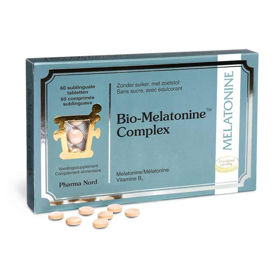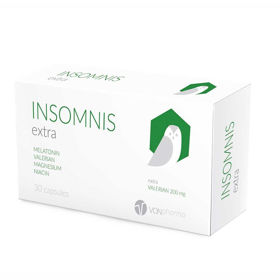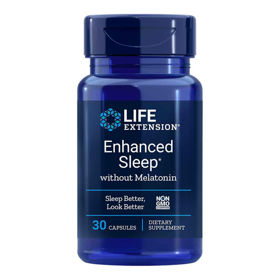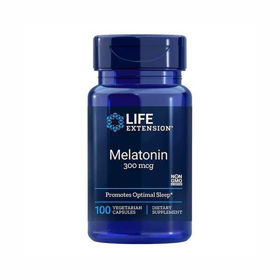Customer question:
How does melatonin work in the body? Anonymous customer's question
Pharmacist's answer:
Melatonin is a natural hormone produced by the pineal gland in the brain. Its secretion is linked to the natural cycles of light and darkness and is vital in regulating sleep and wakefulness. Here are some basic ways melatonin works in the body:
- Regulates circadian rhythm: Melatonin is known as the "sleep hormone" as it helps regulate the body's circadian rhythm. Circadian rhythms are physiological processes that follow a roughly 24-hour pattern and include periods of wakefulness and sleep. Melatonin is usually secreted in the evening and at night to induce sleep.
- Promotes relaxation: Melatonin acts on receptors in the brain responsible for relaxing and reducing the nervous system's activity. This can help prepare the body for sleep and improve sleep quality.
- Effects on body temperature: Melatonin can lower body temperature, which is related to falling asleep. Some researchers believe that the cooling of the body caused by melatonin, through its own mechanism, may be used as a signal for the body to prepare for sleep (source: https://pubmed.ncbi.nlm.nih.gov/16687320/).
- Antioxidant Properties: Besides its role in sleep, melatonin has antioxidant properties that help protect cells from free radical damage. This can affect the overall health and functioning of the body (source: https://www.mdpi.com/2076-3921/13/4/439).
- Regulation of other body functions: melatonin also affects other body functions, such as the immune response, reproductive health, and metabolism.
Does the body produce melatonin on its own?
Yes, the body itself produces melatonin. Melatonin is a natural hormone synthesized by the pineal gland, a small gland in the brain located near the midbrain. Melatonin production begins in the evening when it gets dark and peaks at night when the light is at its lowest.
Melatonin secretion is part of the natural cycle of sleep and wakefulness, called the circadian rhythm. Light is the main factor affecting melatonin production: when light exposure is high (for example, during the day or evening), melatonin production is inhibited. But when it gets dark in the evening, melatonin is released into the bloodstream, which signals the body to prepare for sleep.
Thus, melatonin is a critical hormone that regulates natural patterns of sleep and wakefulness and plays a vital role in regulating the body's biological time.
In what forms can we find melatonin in dietary supplements?
The most common forms of melatonin found in dietary supplements include:
- Tablets: Melatonin tablets are among the most common forms in the nutritional supplement market. These pills usually contain a certain amount of melatonin, stated in milligrams.
- Capsules: Melatonin is also available in capsule form, which may contain a liquid or powder formulation. The capsules are usually filled with a specific dose of melatonin.
- Sublingual tablets: These tablets dissolve under the tongue. Sublingual formulations allow for faster absorption of melatonin into the bloodstream, which can accelerate the onset of effects.
- Powders: Melatonin is also available in powder form, which can be mixed with water or other liquids for easier ingestion.
- Liquids: Melatonin liquid formulations can be consumed directly or added to drinks or food—they also come in spray form.
When choosing a melatonin dietary supplement, pay attention to the dosage and formulation (e.g., sublingual forms for a faster effect) and consult a pharmacist or doctor, especially if you are taking other medications or have any health problems. It is also recommended to follow the manufacturer's instructions and restrictions regarding the long-term use of melatonin to avoid possible side effects.
Interesting reading: Sleeping tablets
Interesting reading: Best sleeping pills forum












 Facebook
Facebook
 Instagram
Instagram
 info@moja-lekarna.com
info@moja-lekarna.com

